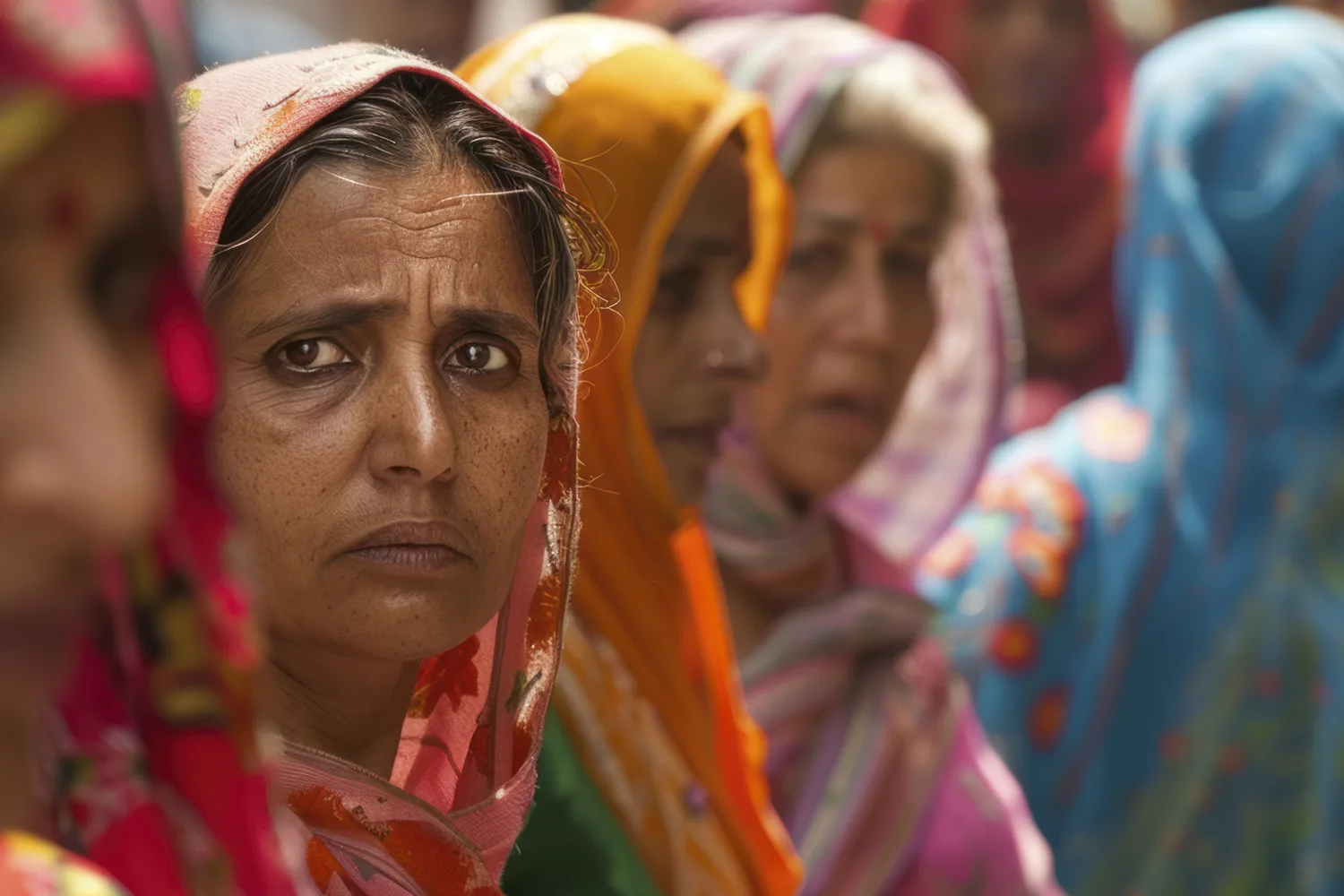
Tehreem Fatima
Tehreem Fatima is a researcher and human rights advocate currently pursuing a Master’s in Human Rights and Democratisation under a European Union scholarship. She focuses on policy research, climate governance, and human rights in South Asia, with a particular emphasis on women’s rights and empowerment. She contributes to international publications and research.
When floodwaters swallow homes, headlines count the dead and displaced but rarely the women who survive. In Pakistan, climate disasters don’t just destroy villages; they leave behind invisible wounds that statistics never show. After the 2022 floods, nearly 8 million women were displaced, and thousands gave birth without medical care or shelter (UN Women, 2022). UN Women called it a “crisis within a crisis.” Three years later, the story repeated itself. The 2025 floods, triggered by unprecedented monsoon rains and glacial melt, have once again uprooted millions, mainly in Sindh, Balochistan, and southern Punjab, where women are the first to suffer and the last to be helped.
ReliefWeb reports that many areas remain submerged, and maternal health services have collapsed (ReliefWeb, 2025). Pakistan stands at the frontline of climate change. Each monsoon season grows more unpredictable, and rural communities have little capacity to recover before the next disaster strikes. For women, displacement is not a temporary condition; it has become a recurring reality. With every flood, they rebuild homes from mud and plastic sheets, only to watch them washed away again. This endless cycle of loss and rebuilding drains their energy, savings, and hope.
Displacement is not only losing land; it’s about losing dignity. In temporary camps, women face unsafe sanitation, limited access to menstrual products, and the constant fear of harassment. According to Human Rights Watch (2023), such crises increase sexual violence and exploitation. In the 2025 floods, volunteers in Balochistan documented dozens of cases of gender-based violence in relief camps, stories that rarely make it to the news. Girls have dropped out of school again, and early marriages are rising as families struggle to survive. The lack of secure spaces in camps is not only a health risk, but it also erodes women’s sense of safety and belonging. Many have reported sleepless nights, afraid to leave their tents even to use the toilet. With schools damaged, adolescent girls are forced to stay home, losing years of education. Some are pushed into domestic labor or early marriage. These decisions, driven by desperation, shape an entire generation’s future. What begins as a natural disaster slowly turns into a social one, rewriting the lives of women in ways few policymakers ever consider.
Behind every displaced family is a woman trying to hold her world together. Many have lost husbands or homes, yet they must feed children, rebuild shelters, and navigate unsafe environments. Their pain is layered with grief, exhaustion, and anxiety about the future. Research published in The Lancet (2023) describes the deep psychological and gendered impacts of climate disasters, but for these women, it’s a daily reality. Psychosocial care is almost nonexistent in rural districts. Relief is measured in tents and food bags, not in the healing of minds and lives.
The injustice is clear: those least responsible for global warming are paying its highest human cost. In Pakistan’s rural Sindh or Baluchistan, women barely emit any carbon, yet they carry the brunt of climate chaos. The lack of gender-responsive disaster planning makes things worse. Relief programs still overlook women’s needs, no separate toilets, no privacy, no safe spaces. UNDP (2024) has urged authorities to integrate gender justice into climate recovery, but implementation remains painfully slow.
Some organizations, however, are trying to make a difference. UNFPA (2023) has been providing reproductive health kits and safe spaces for women in flood-hit regions. Local NGOs like Aurat Foundation (2024) and HANDS (2024) have launched awareness programs to prevent gender-based violence in camps. The efforts show what’s possible when women’s dignity becomes part of the response, not an afterthought. But this cannot be charity; it must be policy. Pakistan’s National Climate Change Policy mentions gender inclusion, but it remains mostly on paper. To go beyond words, the government must allocate funds for women-led disaster committees, ensure equal participation in local climate decisions, and make mental health support a standard part of relief operations. Training female health workers, ensuring access to clean toilets, and providing menstrual hygiene kits are not extras; they are essential.
We cannot rebuild homes and ignore the people who live inside them. Climate justice must mean gender justice. Governments, NGOs, and local leaders must include women in disaster planning, fund psychosocial support, and make safety and dignity central to relief work. For every policy meeting on climate resilience, there should be a woman who has lived through it speaking at the table. Because until her story shapes our action, recovery will always be incomplete. The next time floods strike Pakistan, and they will, we must ensure that women are not just survivors but decision-makers. Every relief camp should have a women’s safety committee, every climate fund a gender quota, and every reconstruction plan a space for women’s voices. Climate change is not gender-neutral, so our response cannot be either. Real recovery will begin the day we stop treating women as victims of disaster and start recognizing them as architects of resilience.
References
- UN Women. (2022). Pakistan Floods: A Crisis Within a Crisis. Retrieved on 2 November 2025, from – https://www.unwomen.org/en/news-stories/feature-story/2022/11/stepping-up-for- women-and-girls-during-the-flood-crisis-in-pakistan#:~:text=The%20project%20fo cuses%20on%20building,and%20other%20male%20family%20members.
- ReliefWeb. (2025). Pakistan Flood Situation Report. Retrieved on 2 November 2025, from – https://reliefweb.int/report/pakistan/pakistan-flooding-response-situation-report-6- october-23-2025
- Human Rights Watch. (2023). Flood Displacement and Gender-Based Violence in Pakistan. Retrieved on 2 November 2025, from – https://www.hrw.org/
- The Lancet. (2023). Climate Trauma and Gendered Impacts in South Asia. Retrieved on 2 November 2025, from https://www.thelancet.com/
- UNDP Pakistan. (2024). Gender and Climate Recovery Framework. Retrieved on 2 November 2025, from https://www.undp.org/pakistan
- UNFPA. (2023). Reproductive Health Support in Flood-Affected Areas. Retrieved on 2 November 2025, from https://www.unfpa.org/
- Aurat Foundation. (2024). Community-Led Gender Protection in Disaster Recovery. Retrieved on 2 November 2025, from https://www.af.org.pk/
- HANDS Pakistan. (2024). Women Protection Initiatives During Flood Response. Retrieved on @ November 2025, from https://www.hands.org.pk/

Tehreem Fatima
Tehreem Fatima is a researcher and human rights advocate currently pursuing a Master’s in Human Rights and Democratisation under a European Union scholarship. She focuses on policy research, climate governance, and human rights in South Asia, with a particular emphasis on women’s rights and empowerment. She contributes to international publications and research.


